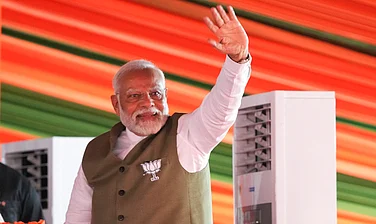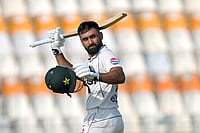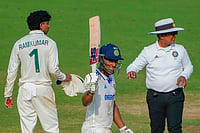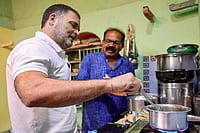The Law Commission of India, whose term was extended till August 2024, is ready to submit its report on the recommendations of simultaneous elections – popularly known under the banner of ‘One Nation, One Election’. According to a report by The Indian Express, the Commission is likely to frame tentative timelines for the synchronised polls for 2024 and 2029 cycles. The news comes weeks after the Centre announced a high-level panel headed by former president Ram Nath Kovind explore the feasibility of simultaneous polls, a move that was received critically by opposition parties and some political analysts.?
One Nation, One Election: Law Commission's Upcoming Report May Have Possible Timelines For 2024 And 2029 Polls
'One Nation, One Election' was one of the highly speculated topics of discussion for the special session of Parliament, whose agenda kept a secret till the very last moment ultimately turned out to be the Women’s Reservation Bill. But the speculations around it are far from over especially ahead of the Lok Sabha elections next year.?

The controversy around ‘One Nation, One Election’ has been building for the past few years. Since coming to power in 2014, Prime Minister Narendra Modi has voiced for changing the electoral process and conducting simultaneous polls at several public gatherings. It was also a part of BJP’s Lok Sabha Election Manifesto in 2014, in which they had promised to evolve a method for holding the Assembly and Lok Sabha elections simultaneously.?
It was one of the highly speculated topics of discussion for the special session of Parliament, whose agenda kept a secret till the very last moment?ultimately turned out to be the Women’s Reservation Bill. But the speculations around ‘One Nation, One Election’ are far from over especially ahead of the Lok Sabha elections next year.?
‘One Nation, One Election’ is seen by many as a direct threat to the federalism, one of the fundamental pillars of Indian democracy. It also challenges the very first Article of the Indian Constitution that says: “India, that is Bharat, shall be a Union of States”.?
Last week, the Kovind-led ONOE committee conducted the first meeting where the preparation of working papers, how to go about holding consultations with the stakeholders and research on the subject for an in-depth discussion - were on the agenda. The committee, in a statement after the meeting, said they decided to invite recognised national parties, regional parties holding governments in states, those with representatives in Parliament and other recognised state parties "for seeking suggestions/view points on the issue of simultaneous elections in the country".?
In an earlier report, Outlook has explained the draft recommendations of the Law Commission in 2018, in which it suggested that holding simultaneous elections to the Lok Sabha and state Assemblies is the solution to prevent the country from being in constant election mode. They recommended three alternatives to synchronise elections in India – first, advancing or postponing election timings in certain states; second, if all assembly elections are held as per the first suggestion, then conducting elections only twice in five years; and third, if simultaneous elections are not possible, then all elections falling due in a calendar year to be conducted together.
The Commission said it will save public money and reduce burden on the administrative setup and security forces and will also ensure timely implementation of government policies, and ensure that the administrative machinery is engaged in development activities rather than electioneering. This has been reiterated by top leaders of the BJP, including Prime Minister Modi, Home Minister Amit Shah and BJP chief JP Nadda.
In the latest magazine issue of Outlook on ‘One Nation, One Election’, Abhik Bhattacharya reported that experts believe ONOE may lead to regional issues getting undermined as national parties will ride on the back of national achievements to garner political support even at the state level.
In the same issue, Vikas Kumar, an economics professor at Azim Premji University, Bengaluru, wrote about how the recoupling of elections will benefit the larger national parties as it will help them deploy their campaign resources more efficiently, and how this could potentially alter the political landscape by limiting the space for smaller national or regional parties.
Shahina KK and Anisha Reddy reported on how in the southern states the idea appears highly implausible to constitutional experts and non-BJP parties. But while it may not be implemented, it will be used like Citizenship Amendment Act and Uniform Civil Code debates to weaken the diversity of the country, and thus to achieve the goals of Hindutva.
In view of the latest news of the Law Commission preparing another report on the issue, Outlook takes a deeper look into the controversies and challenges around ‘One Nation, One Election’.
- Previous StoryOla Founder & Comedian Kunal Kamra Engage In Online Spat Over Customer Service Issue; Ola Shares Fall | Explained
- Next Story

























